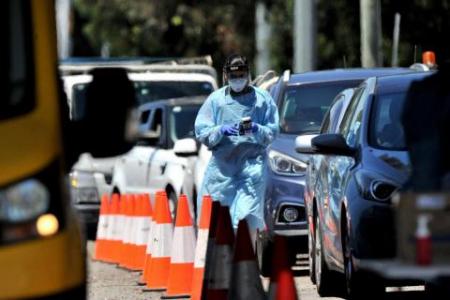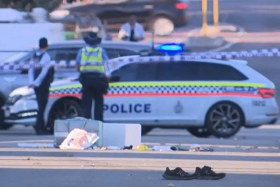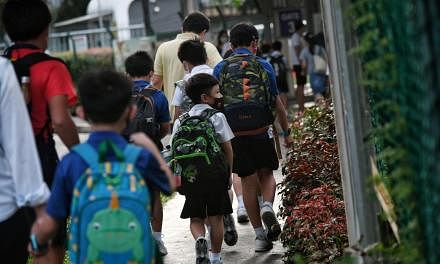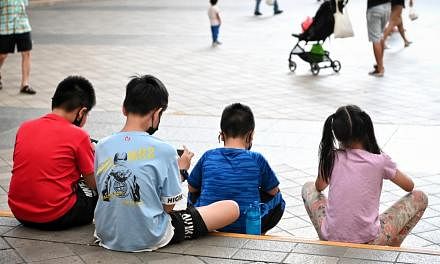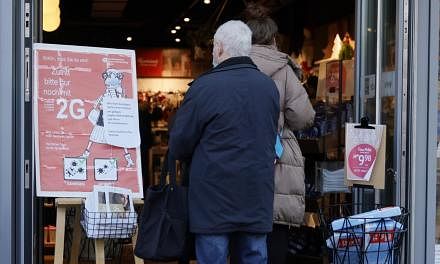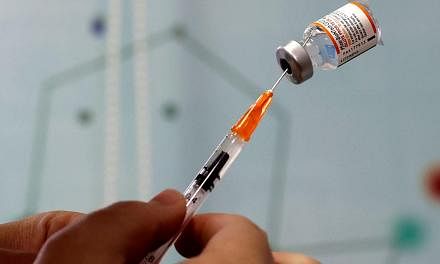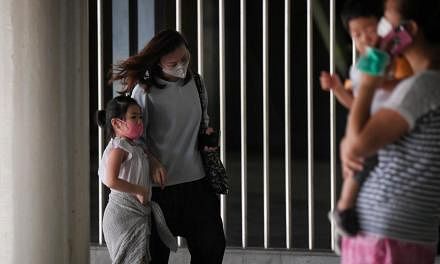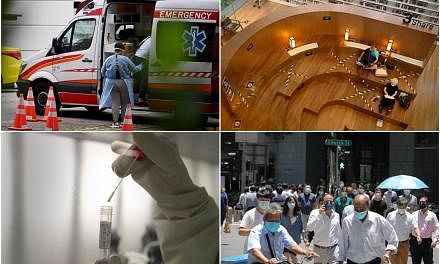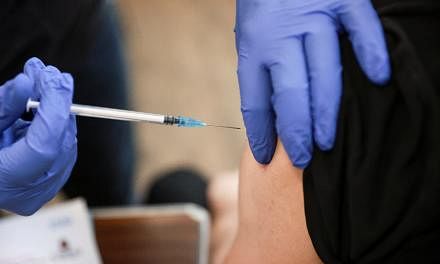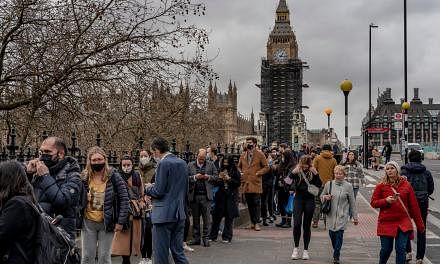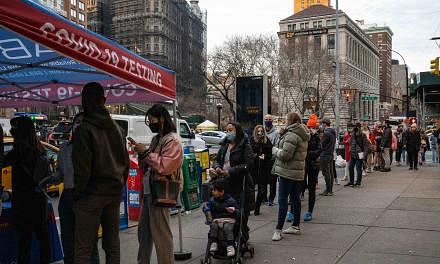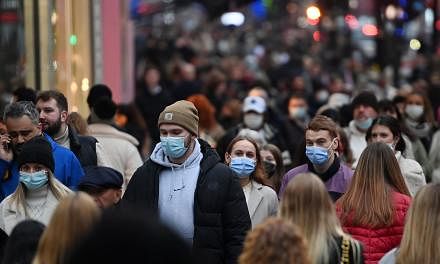Omicron wave leads to surge in Covid-19 cases in Australia, calls mount to reimpose restrictions
SYDNEY - Australian state and federal leaders have been urged to bring to an end the nation’s long-awaited reopening with the number of new Covid-19 cases involving the Omicron variant setting a national record on Tuesday (Dec 21).
As Prime Minister Scott Morrison prepared to hold an emergency meeting with state and territory leaders to discuss the Omicron wave on Wednesday, modelling by the Melbourne-based Doherty Institute showed case numbers in the country could reach about 200,000 a day – almost 1 per cent of the population – by late January or early February.
The Doherty Institute analysis reportedly states: “Boosters alone will not be fast enough to halt the spread of Omicron.”
Australia’s most populous state, New South Wales (NSW), on Tuesday registered 3,057 local cases, a daily record for any state in Australia. Nationally, there were 4,562 new local cases. Case numbers in NSW are doubling roughly every three to four days.
Australia largely eliminated or controlled outbreaks involving previous strains of the coronavirus but is now preparing for what may be the most ominous phase of the pandemic so far.
The current surge in cases comes at a terrible time. Many Australians are about to start their summer holidays and travel across the country, taking advantage of the decision by several states to finally ease their border closures to enable interstate tourists to re-enter. Many Australians have also been preparing to celebrate the Christmas holiday later this week – at which families traditionally meet indoors.
But health experts are now calling on state and federal leaders to urgently bring back restrictions such as mandatory masks.
The Royal Australasian College of Physicians said states hit hard by Omicron should consider re-introducing compulsory app check-ins, masks, and limitations on the size of gatherings. Otherwise, it warned, hospitals could be overwhelmed and the consequences “dire”.
But some Australian leaders have been reluctant to change their plans to reopen, even though those plans were prepared before the Omicron wave struck.
The NSW Premier, Mr Dominic Perrottet, has so far refused to tighten measures, saying residents needed to take “personal responsibility” and ensure they were fully vaccinated. About 90 per cent of eligible Australian residents are fully vaccinated.
“We always said, as we open up, case numbers will increase, hospitalisations and (intensive care) numbers will increase,” Mr Perrottet said on Tuesday.
“I believe as we got through every other challenge over the last close to two years we will get through this challenge too.”
The emergency national Cabinet meeting involving Mr Morrison and other Australian leaders on Wednesday will be looking at bringing forward the rollout of booster shots –from five months after a second dose to four – and rules for mask-wearing. In recent days, several states have reintroduced mandatory indoor masks.
But Mr Morrison, like Mr Perrottet, has signalled he will resist moves to reimpose restrictions. He has urged states not to return to lockdowns, but has suggested he is open to indoor mandatory masks.
“The time for that heavy hand is behind us,” he told reporters on Tuesday. “We have to move from a culture of mandates to a culture of responsibility. That's how we live with this virus into the future.”
But he added: “Yes, we're going to need to continue to calibrate how we manage this virus... in the face of Omicron.”
The Australian Medical Association on Tuesday urged state and federal leaders to reimpose a range of restrictions, including capacity limits at indoor venues and sporting events. The association's President, Dr Omar Khorshid, said political leaders should not view reverting to such measures as a policy failure.
"A much more cautious approach is required, at least until we know more about Omicron," he said.
"The approach so far by the NSW government in particular is risking lives, it is risking an extraordinary impact on the health system into next year and it just does not make sense."
Get The New Paper on your phone with the free TNP app. Download from the Apple App Store or Google Play Store now

